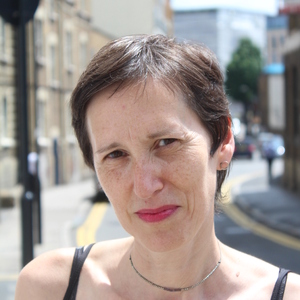You are viewing your 1 free article this month. Login to read more articles.
Breaking bridges
Dutch author Marieke Lucas Rijneveld has explained their decision to step down as translator of African-American poet Amanda Gorman’s book The Hill We Climb in a poem, writing that they “were able to grasp when it isn’t your place, when you must kneel for a poem because another person can make it more inhabitable”. Gorman became an international star after performing a poem at President Biden’s inauguration. The publisher Meulenhoff had announced Rijneveld, the youngest ever winner of the International Booker prize, as Gorman’s translator in February. Rijneveld made it clear in their poem, "Everything inhabitable", that they are someone who wants to improve the world and “never lost that resistance…to face up to all the bullies and fight pigeonholing with your fists raised”.
Rijneveld resigned from the assignment after criticism that they were an “incomprehensible choice” as translator. It’s an action taken under pressure that may only serve to shrink the possibilities of literature. Activist and journalist Janice Deul wrote: “Why not opt for a writer who - just like Gorman - is a spoken word artist, young, female and: unapologetically Black?” She pointed out that Rijneveld is “white, non-binary, has no experience in this field, but according to [the publisher] Meulenhoff is still the 'dream translator'?” Gorman reportedly approved the choice of Rijneveld although they are not, as Deul points out, a professional translator.
But the implication of Deul’s criticism, and the challenge now facing Gorman’s Dutch publisher, is that the translator should match the ethnicity or identity of the author. A white, non-binary translator is not apparently qualified to translate the work of a Black author. And presumably therefore a Black translator would not be considered fit to translate work by a white, non-binary author.
Rijneveld writes in their poem “the point is to be able to put yourself in another’s shoes, to see the sea of sorrow behind another person’s eyes”. But their actions suggest that empathy is not enough for a translator: you are apparently only qualified if you have lived the experience of the author.
Translators are a bridge to other cultures. They are often unsung and unrecognised as artists in their own right. It takes linguistic and literary skill to transform a voice from another language into readable prose that captures the essence of the original text. Translators are perhaps most like musicians as interpreters of another artist’s work. It’s not a big pool, and if publishers are now going to feel pressured to select translators by identity rather than track record, they are going to struggle.
Deul listed a number of spoken word artists whom she considered up to the task of translating Gorman. Meulenhoff’s decision was probably more about box office in any case - they did not choose a star translator, but a star writer. But it’s important to separate identity politics from the question of diversity in publishing, which remains predominantly white despite current efforts to address the problem. In the UK, the National Centre for Writing’s emerging translator programme includes a mentorship for BAME literary translators. Are those translators destined to translate only writers from their own community? That would be an unfeasible career for most translators. Access to a career in publishing should surely enable the widest possible path and not one that silos individuals according to the group with which they identify.
I’ve been lucky to work with many outstandingly gifted translators for more than 15 years. Over the past year, I’ve been working with translators for an anthology of essays on antisemitism that includes writing in Polish and German. And now I’m asking myself, what would my criteria be if a publisher wanted to translate the book? Would the translator have to be Jewish? Is it only a translator who has experienced antisemitism who has the sensitivity and authority to translate such a book? Prescriptive demands of this nature in fact risk narrowing opportunities for any writer or translator who comes from a minority group, separating them from the cultural mainstream. It’s an approach that categorises literature by identity, rather than common humanity. And ultimately it undermines one of the great gifts of art - to transcend boundaries through acts of imagination. If the pressure on Rijneveld to withdraw has a lasting impact on who is considered fit to translate a text, it can only make the world a smaller place for all of us.
Jo Glanville is editor of Looking for an Enemy: eight essays on antisemitism, published by Short Books in May.
















